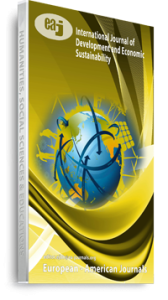Agriculture has been identified as a critical sector with huge potential for promoting inclusive growth by stimulating economic growth, reducing poverty, and creating employment for a large number of people in developing countries. Against this backdrop, the paper assessed the sector’s potential in accelerating sustainable broad-based growth and examined key strategies for realizing inclusive agricultural growth in Nigeria. Using data, covering 1981-2015, the results indicate agriculture’s significant contribution to economic growth which is a necessary (but not sufficient) condition for achieving inclusive growth. Results of employment elasticity computed for the three major sectors suggested that agriculture led others (1.88) followed by services sector (1.18) and industry (0.33) in contributing to employment. Based on the analysis, the paper recommended policies such as increased public investment, access to farm inputs, youth-friendly and price stabilization programmes in order to accelerate inclusive growth in the agriculture sector.
Keywords: Agriculture, Inclusive Growth, Nigeria

